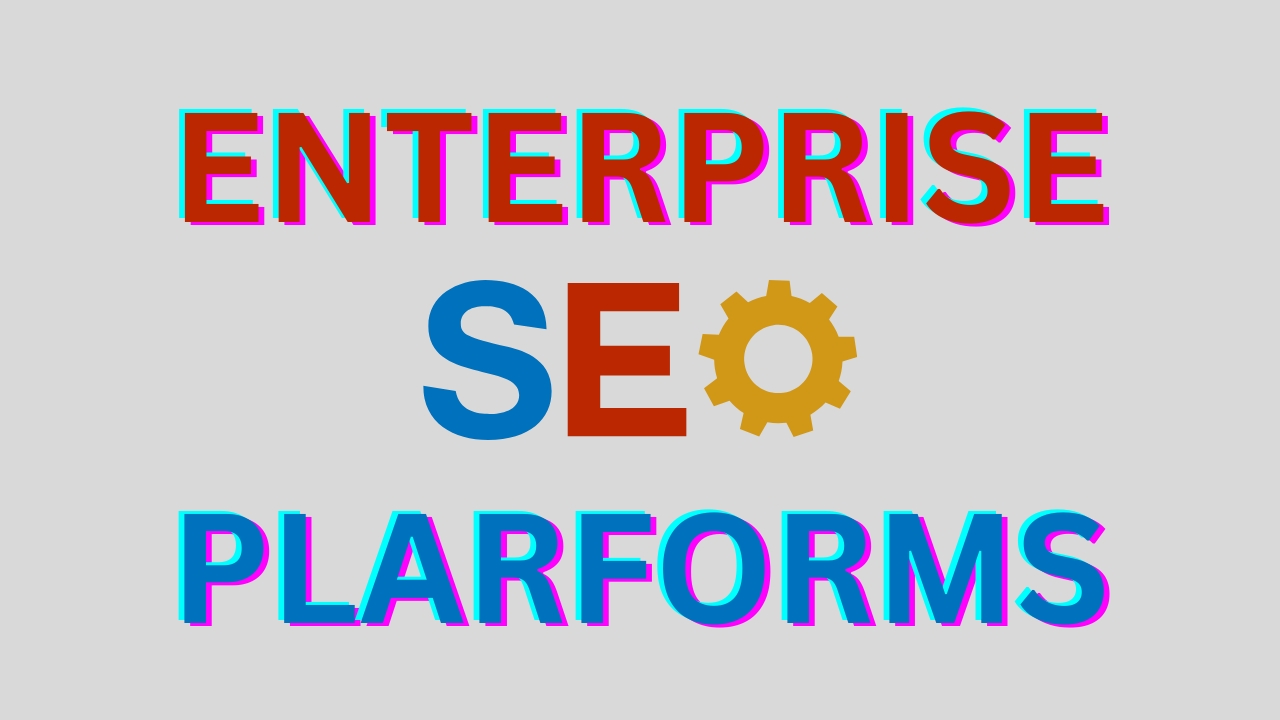If you’ve been in the SEO game for more than a few years, you’ve probably noticed just how fast things are evolving. Algorithms change, search behavior shifts, and competition keeps getting tougher. For businesses managing hundreds—or even thousands-of—of web pages, keeping up is like running a marathon that never ends. That’s where AI-powered Enterprise SEO Platforms come in. And trust me, they’re not just another flashy tool. They’re becoming essential.
I’ve worked in SEO and marketing in the digital age for more than a decade. I can remember the beginning of time in which we tracked rankings manually using spreadsheets and key word stuffing (sort of) was effective. What’s the difference nowadays? This is a completely different world, particularly for websites that are enterprise-scale. Let’s discuss how these AI-driven platforms aren’t just trending, they’re the future.
The Complexity of Enterprise SEO
Managing SEO for an enterprise-level website isn’t just about plugging keywords into blog posts. You’re dealing with:
- Hundreds (or thousands) of landing pages
- Multiple stakeholders and teams
- Complex tech stacks
- Constant content production
- Global audiences and localization
Doing all that manually? It’s a nightmare. Even with traditional SEO tools, it’s tough to scale insights or actions. That’s where AI-powered Enterprise SEO Platforms start to shine—they handle scale like no human team ever could.
AI Isn’t Just Buzz—It’s a Game Changer
Let’s bust a myth right away: AI isn’t replacing SEO pros. It’s making us better.
AI in enterprise SEO platforms works behind the scenes to automate the tedious stuff—like technical audits, content gap analysis, competitor tracking, and even keyword clustering. But more importantly, it helps uncover patterns in massive datasets that we can’t see on our own.
For example, one platform I used recently flagged a subtle internal linking issue across 4,000 pages that was hurting crawl efficiency. Would I have spotted that manually? Not a chance. But AI did, in seconds.
Smarter Content at Scale
One of the biggest pain points in enterprise SEO is creating content that ranks and converts at scale. AI-powered platforms can now:
- Analyze SERPs and competitor content in real-time
- Suggest topic clusters based on user intent
- Generate outlines tailored to specific keywords
- Identify content decay and suggest updates
This doesn’t mean handing the reins entirely to AI. You still need real humans for strategy, tone, and quality control. But the grunt work? That can be delegated to your platform, saving you hundreds of hours per year.
Real-Time Technical Monitoring
Technical SEO is the silent killer of many enterprise sites. Pages go missing, crawl budgets get wasted, and redirects spiral out of control.
AI platforms like Botify, Deepcrawl, or JetOctopus (among others) offer continuous, real-time monitoring of your site health. They detect anomalies as they happen—so instead of waiting for your monthly audit, you can fix a broken schema markup or a rogue noindex tag the same day it happens.
That kind of responsiveness can mean the difference between maintaining rankings and disappearing from page one overnight.
Personal Experience: The Turning Point
I used to rely on a mashup of tools—Screaming Frog, Ahrefs, Google Data Studio, and Slack notifications—to monitor and manage our enterprise clients. It worked, but it was clunky. Then we switched to an AI-powered enterprise SEO platform (we tried Conductor and then settled on BrightEdge for a few clients), and everything changed.
We went from reactive to proactive. From doing “SEO tasks” to building SEO strategies. Our reporting became clearer. Our actions became more confident. And our results? Let’s say organic traffic and revenue took off like never before.
Decision-Making Backed by Real Data
Enterprise SEO Platforms with AI don’t just gather data—they make sense of it. Some platforms even layer on predictive analytics, helping you see what could happen if you make a change today. Want to estimate how much traffic you’d gain by fixing thin content across 1,200 product pages? The platform will tell you.
It’s like going from driving blindfolded to flying with radar. You’re still the pilot, but now you have visibility.
Integration with the Wider Marketing Stack
In enterprise environments, SEO can’t live in a silo. AI-powered platforms now integrate seamlessly with tools like:
- Google Analytics 4
- Adobe Experience Manager
- Salesforce
- SEM tools like Google Ads
- CMS platforms like WordPress and Shopify
This means you’re not just optimizing for search—you’re optimizing for the entire customer journey. And that’s the kind of holistic approach modern businesses need.
A Few Things to Watch For
Of course, no tool is perfect. Here are a few things to keep in mind when considering an enterprise SEO platform:
- Pricing: These aren’t cheap. Expect enterprise-level costs. But the ROI is usually worth it.
- Training curve: AI platforms are powerful, but they’re not always user-friendly out of the box. Make sure your team gets trained.
- AI limitations: AI is good, but it’s not always “right.” Use it as a smart assistant, not a decision-maker.
Conclusion
AI isn’t coming to SEO—it’s already here. And for enterprise teams, embracing AI-powered Enterprise SEO Platforms isn’t optional if you want to stay competitive in 2025 and beyond.
This isn’t about replacing humans. It’s about making humans better. Smarter. Faster. More strategic. And for me? It’s about finally getting back to doing the parts of SEO I love—creative strategy, content planning, and making things that matter.
So, if your current SEO workflow feels outdated or overwhelmed, take a serious look at what these platforms can do. Because the future of search is intelligent, and it’s already reshaping the way we work.

